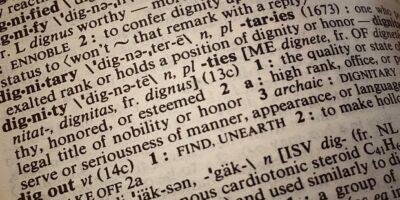Corresponding Author: Anthony Ballas
Email: tonyjballas@gmail.com
Institutional/Organizational Affiliation: University of Colorado Denver, Adjunct, English Dept; Northern New Mexico College, Adjunct, Dept. of Arts & Human Sciences; Duke University, PhD Student, Literature Dept.
Key Words: adjunct labor; composition; English studies; general strike; neoliberalism; Red Scare
It’s not enough to accuse administrators like James White of insensitivity for suggesting we never waste the opportunity to use a “good pandemic” to gut department funding, evacuate faculty positions, and even prune entire departments (Bérubé et al., 2023). White clearly articulated his motives through these words, freely soliciting his open attack on contingent faculty with a frankness not often found in academia—a public confession which should have led to his resignation as interim dean at the University of Colorado.
Jennifer Ruth (2022), recalling White’s actions, describes these and other attacks as being straight from the “disaster capitalism playbook,” the manufacturing of crises to further justify the neoliberalization of the university and the consequent casualization of its labor force. The statistics are by now well known: 75% of university faculty nationwide are contracted on a contingent basis (AFT, 2022[1]). This translates to adjuncts, graduate students, and other non-tenure-track faculty laboring without benefits, without the prospect for professional advancement, and under the constant threat of nonrenewal on financially rationalized and quite often politically retributive grounds (AFT, 2022). As Ruth puts it, with a frankness of her own, “little work is involved in not rehiring someone you never promised to rehire, even if that person has served… for decades” (Ruth, 2022).
Although I have not served as a faculty member for decades, I have been associated with my degree-granting institution for over 10 years; first as undergraduate, then as a graduate student, and now as an adjunct composition instructor. As a graduate student teacher, I faced nonrenewal twice and faced it again in my first year teaching as an adjunct after earning my degree. That’s three occurrences of nonrenewal in three years, teaching in a discipline that accounts for the overwhelming majority of courses offered nationwide at any given time, as it is standard for universities and colleges to require students to earn credits in some form of first-year writing. My department clearly didn’t want to “waste a good pandemic” either, leaving myself and others without healthcare and without an income during an unprecedented pandemic.
Composition is a particularly embattled discipline in higher education, as Sharon Crowley (1998) observes on the very first page of her classic The History of College English, regarding first-year, college-level composition instructors:
[I]n American colleges and universities are undervalued, overworked, and underpaid. Teachers of first-year writing are routinely employed on a contingent basis, which does not entitle them to the professional prerequisites taken for granted by full-time faculty, such as decent salaries and health benefits, and access to secretarial staff, offices, telephones, and duplicating facilities. Composition teachers do not sit on the committees that make decisions affecting their teaching, including committees that choose textbooks and determine teaching schedules or those that write syllabi for the courses. Part-time teachers are sometimes hired the evening before a class begins; they are given a textbook and a syllabus and told to have a good semester. Graduate student teachers… are typically given an orientation the week before classes begin (p. 1).
Crowley’s words were written in the 1990s, and yet they are still—perhaps now more—relevant today, nearly 30 years later. As James Rushing Daniel (2022) recently put it, “academic employment has merged with the gig economy, rendering academic employees across the board contingent and disposable” (p. 158) which is a particularly acute problem among composition instructors, who account for one of (if not the) largest population of contingent faculty in the university system. Why, then, is composition “nearly invisible within the academy?” Why is it that scholars from all disciplines, as Crowley (1998) reminds us, “are largely unaware that composition studies exists?” (p. 4).
I recall an advisor once telling me before I entered into my master’s program that PhD admissions committees won’t care about teaching experience. This sentiment reveals higher education’s underlying disposition toward composition instruction more generally. Whether this sentiment is upheld consciously or not, why hasn’t this reality been considered as an absolute scandal in the university in disciplines across the board, let alone English Studies in particular?
On the ground level, I can attest to these dispositions and assumptions about composition from my own experience. The audible sighs and groans emanating from tenure-track offices when they are tasked with teaching first-year writing; first-year writing instructors are perceived as “…lack[ing] of specialization,” and “identified as teachers rather than scholars” and thereby “denied access to professional status” as a result (Crowley, 1998, pp. 121-122). We are “‘reduced to a proofreader,” and placed in so-called “adjunct pools,” a kind of at-will, intellectual reserve army for university departments; a “holding tank,” as Crowley (1998, pp. 131) puts it, ensuring that we remain in a state of “professional deficiency.”
We are drowning in these adjunct pools while wading neck-deep in student debt.
Cary Nelson (2020) reminds us, despite representing “subject areas with the largest concentration of precarious faculty” (p. 289), including composition, the Modern Language Association (MLA) was late to respond to this crisis. Their response consisted of offering a list of suggested guidelines for hiring committees regarding part-time faculty employment and a host of near-impossible goals such as a base-pay adequate to full-time staff. According to these guidelines, with a load of six courses per semester at a recommended rate of $11,500 per course, I should have made $69,000 in the fall of 2022 alone. Needless to say, I made a fraction of this number despite teaching upwards of 150 students between two institutions.
Instead of remuneration, adjuncts are forced into a position where we essentially rent classroom time. We pay for our own classroom equipment and for the cost to maintain it; we pay to travel to and from campus, often unable to secure public transit passes; we pay an outrageous rate for campus parking. We can add work experience to our CVs, which in turn function more like credit reports than professional résumés, demonstrating, at best, that we might pre-qualify to apply for more classroom loans elsewhere.
As “freeway flyers” (on roadways and the “information superhighway” alike) we bounce between multiple university gigs at once, working with inflexible scheduling demands and with textbooks and course materials we often have little to no say in selecting. It was not until I reached out to my department in the second or third week of the 2022 fall semester that I was informed of the abrupt change to our course textbook—changes that had already taken place weeks prior. This negligence cost my students hundreds of non-refundable dollars for their purchases from our corporately owned campus bookstore and, to add insult to injury, from our campus library as well. The disruption this negligence caused to our time in the classroom was equally unforgivable. With only about 15 weeks in the classroom these easily avoidable financial caprices suddenly shrunk the semester to untenable dimensions, seriously infringing on valuable teaching time.
Such is the political economy of the neoliberal classroom.
I’ve received countless invites in my university inbox for department happy hours and end-of-semester gatherings, but have yet to receive an invitation to participate in scheduling decisions, textbook decisions, or curricular and pedagogical meetings—not to mention annual budgetary meetings. “It’s part of your job,” I vividly recall a tenure-track professor telling me when I expressed my reluctance to participate in a department get-together towards the end of my first semester as a graduate student. Adjuncts are not averse to socializing with their colleagues, but we’d like to be recognized and remunerated as colleagues in the first place. We’d surely be more willing if these expectations were also paired with invitations to participate in shared governance (as faulty as it usually is), reducing the imagined distance as well as the often “active distrust and hostility that obtains between tenured and precarious faculty” (Nelson, 2020, p. 289). Many of us would happily attend department happy hour, but I’m sure many more would also like to attend departmental annual budget and policy meetings—and get paid to do so.
It is widely known, though not often acknowledged, that contingent faculty shoulder the burden of copious unpaid labor for our departments. We mentor students and are often cramped into shared office spaces with little to no privacy to do so. How can we be expected to serve students who come to us with concerns, often in crisis, if we can’t offer them the bare minimum of adequate privacy?
We are also asked from time to time to perform data collection and participate in assessments for our departments, attend mandatory liability trainings, and attend other trainings demanded by department heads and administration. All unpaid.
On the off chance we are paid for extra labor we are often paid in petty cash or discretionary funds for projects put together by sympathetic faculty who are themselves hamstrung by campus and department employment policies. I recall being paid in the form of a gift card to assess student portfolios for my department one summer as a graduate student. I could only laugh when the gift card turned out to be empty when I finally received it—an episode which caused equal parts financial insecurity and embarrassment.
We are often not paid until the second month of the semester, receiving our contracts for courses we’ve already been teaching for weeks. Institutions have been known to implement proportional scaling in adjunct contracts, reducing the per-credit hour rate if our courses don’t meet certain arbitrary enrollment thresholds (Northern New Mexico College, 2019).
Our pay is reduced by half when we are asked to co-facilitate courses with full-time faculty, even though the latter are paid in full. While tenure-track faculty were offered the choice to teach online after campuses began to open back up after the first wave of the pandemic, many of us adjuncts weren’t given the same option. We were instead expected to show up to the classroom without PPE being provided. After all, the vulgar slogan “butts in seats,” translates to increased tuition and justification for increased campus fees.
Alternatives to this model have been tested, including the so-called “alt-ac” movement, which has now spawned something of a cottage industry that includes online seminars, memoirs, and what are essentially self-help books. All of these tend to elevate personal choice to the level of collective action, seamlessly repeating the individualist ethos of neoliberalism: resignation masquerading as viability.
Composition studies might be a small world, but composition instruction is not. It presents us with an opportunity to rethink our organizing efforts at scale. Nearly every student in the university system will, at one point, find themselves in a first-year writing classroom. Every discipline and every department finds representation in the composition classroom in some form. Composition is uniquely positioned not only to teach the language of organizing, but as an avenue for this language to connect to every discipline on campus through student and faculty alike. Though neoliberalism has resulted in the “balkanization of university departments,” as James Rushing Daniel (2022, p. 156) put it, composition is one of the few disciplines interfacing with every other discipline campus wide. Given this feature of the composition classroom, we shouldn’t only focus on reforming composition studies pro domo sua, but use it as an opportunity to unbalkanize the disciplines. This, along with “turning to friendships beyond the parochial confines of the university” as Mohan J. Dutta (2022) proposes, and the continuation of our organizing and collective bargaining campaigns nationwide to build cross-campus, and cross-industry coalitions, composition, this undervalued though invaluable, half-forgotten backbone of higher education, offers instructors a unique vantage point to rethink organizing efforts, many of which are organic to the composition classroom already.
As I’ve argued elsewhere (Ballas, 2023a), organizing college composition requires a push for shared union representation among contingent faculty, graduate faculty, and full-time faculty. Pushing for single collective bargaining agreements in order to break down the real and imagined barriers between faculty at all levels inclusive of staff and student workers is a vital step toward collective organizing. Likewise, composition instructors at all levels shouldn’t shy away from addressing labor issues in what might seem at first glance to be unconventional places; places such as academic conferences, workshops, and, of course, the classroom itself. Lastly, composition instructors have the unique skill of writing and rhetoric at our fingertips, an indispensable tool in our arsenal. We must continue to raise these issues and others in publications—academic, public, or otherwise—and remember to treat the page itself as a site for organizing.
Turning the tables on administrators who are so willing to pull the rug on contingent faculty from semester to semester is not a fantasy, as evinced by the recent wave of graduate student-led union victories nationwide and the recent and monumental victories won by United Auto Workers, WGA, and SAG-AFTRA (Horne & Ballas, 2023). Composition instructors must understand our structural location as part of this broad-based, national labor movement which just so happens to be making unprecedented gains in recent memory and shows no signs of abating.
In tandem with increasingly right wing financial policies (Ballas, 2023b) being implemented at higher education institutions across the country, we have also recently witnessed the intensification of a neo-McCarthyist or Red Scare-style political front form against students and faculty protesting Israel’s ongoing genocide in Gaza. The recent wave of campus movements led by students who have courageously mobilized and demanded their institutions divest from Israeli and military contracts ought to mobilize faculty unions to get directly involved in protesting these injustices—especially after what we have witnessed with the hysterical and violent responses to student protests for peace and liberation by university administrations across the country. In the face of these injustices, faculty unions ought to be willing to authorize strike actions in protest of the militarized police responses to these protests authorized by university administrations. We should make our own demands that student demands for divestment be met unequivocally. If protesting genocide isn’t the spur needed to mobilize job actions in academia then nothing is. And if the latter is the case, then academia may very well be altogether bereft of utility, political or otherwise.
I’ve often wondered: what would a general strike of composition instructors (the largest population of instructors in the university system) look like nationwide? The better question to ask in 2024 is: what would it accomplish?
References
American Federation of Teachers. (2022). 2022 Contingent Faculty Report. AFT. https://www.aft.org/highered/2022-contingent-faculty-report
Ballas, A. (2023a). As Universities Submit to Neoliberalism and Fascism, Workers Must Fight Back. Truthout. https://truthout.org/articles/as-universities-submit-to-neoliberalism-and-fascism-workers-must-fight-back/
Ballas, A. (2023b). Layoffs at West Virginia University Expose Right-Wing Trends Sweeping Higher Ed. Truthout. https://truthout.org/articles/layoffs-at-west-virginia-university-expose-right-wing-trends-sweeping-higher-ed/
Bérubé, M., Decasare, M., Garcia, R. J., Holloway, P., et al. (2023, August 30). Special report: Covid-19 and academic governance. AAUP. https://www.aaup.org/report/special-report-covid-19-and-academic-governance
Crowley, S. (1998). Composition in the University. Pennsylvania University Press.
Daniel, J.R. (2022). Toward an Anti-Capitalist Composition. Utah State University Press.
Dutta, M.J. (2022). Let’s Build Leftist Academic Solidarities to Rebuff Far Right Attacks. Truthout. https://truthout.org/articles/lets-build-leftist-academic-solidarities-to-rebuff-far-right-attacks/
Horne, G. & Ballas, A. (2023). How Hollywood’s Black Friday Strike Changed Labor Across America. Zócalo Public Square. https://www.zocalopublicsquare.org/2023/11/09/hollywood-black-friday-strike-changed-labor-across-america/ideas/essay/
Nelson, C. (2020). Contingency. In Flores, L.A. & Olcott, J.H. (Eds), The Academic’s Handbook, Fourth Edition Revised and Expanded (285-294). Duke University Press.
Northern New Mexico College. (2019). Proportional Scaling Pay: Academic Year 2019-2020.
Ruth, J. (2022). Adjunct and tenured faculty must unite to resist pandemic opportunism on campus. Truthout. https://truthout.org/articles/adjunct-and-tenured-faculty-must-unite-to-resist-pandemic-opportunism-on-campus/
Bio
Anthony Ballas currently teaches composition and rhetoric at the University of Colorado at Denver and literature, philosophy, and social sciences at Northern New Mexico College. He has published numerous articles, reviews, and book chapters in fields ranging from music, literature, film, and architecture, to COVID-19, international politics, the labor movement, and the Haitian Revolution. He is currently editing a volume with Gerald Horne, and is co-editing, along with Aspen Ballas, Horne’s unpublished biography of Malcolm X. In addition to teaching and writing, Ballas is involved in the academic labor movement and is organizing for fair pay and better working conditions alongside his fellow adjuncts with United Campus Workers Local 7799 and the Northern Federation of Educational Employees Local 4935. Ballas also hosts the De Facto podcast and is the co-host, along with Jason Christian and Tim Jones, of the Cold War Cinema podcast.
Correspondence
Email: tonyjballas@gmail.com





